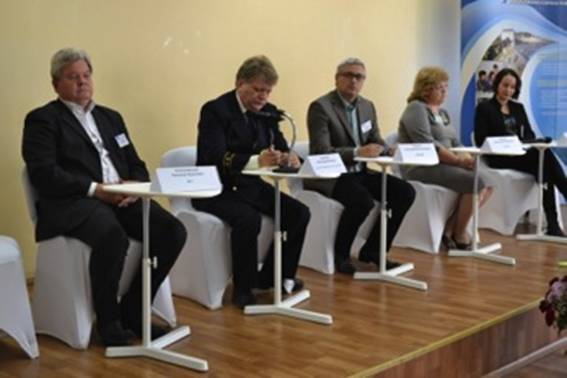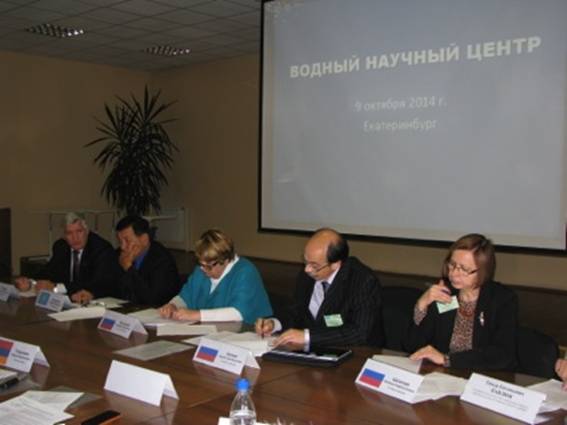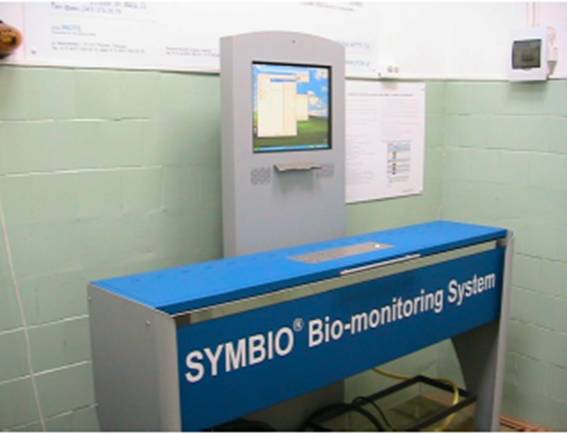ALL-RUSSIAN SCIENTIFIC-PRACTICAL CONFERENCE "WATER MANAGEMENT IN RUSSIA: ACHIEVEMENTS, CHALLENGES AND PROSPECTS"
On 7-10 October 2014, in Yekaterinburg, the All-Russia Scientific-Practical Conference “Water Management in Russia: Achievements, Challenges and Prospects” was held, on the basis of the Federal State Unitary Enterprise "Russian Scientific Research Institute of Integrated Use and Protection of Water Resources" on the occasion of its 45th foundation.
During the first conference day, the key reports were delivered. Koronkevich N.I., Professor from the Institute of Geography under the Russian Academy of Science, delivered the report “The stable and changed state of water resources in the world and Russia”. Alekseevskiy N.I., Professor of the Moscow State University, told about parameterization of hydrologic characteristics when solving water-sector objectives. Yasinskiy S.V., Institute of Geography under RAS, described the structure of the hydrologic cycle of the Volga basin in various phases of water content for a long-term period. Gareev A.M., Professor of the Bashkir State University, presented a long-term dynamics of changing the climatic and hydrological characteristics and their economic and environmental effects. Gaev A.Ya., Institute of Ecological Problems of the Hydrosphere under the Orenburg State University, stressed the necessity for activation of efforts to solve water-sector and ecological problems. He noted, for example, cases when a natural increase in forest areas is not documented, and this allows for building in these areas without required permission.
Burlibaev M.Zh., Professor of the Kazakh Agency of Applied Ecology, told about the present regime of hydrochemical and toxicological parameters of the transboundary flow of the Ural River and the character of its transformation within the territory of Kazakhstan. Gabrielyan B.K., Director of the Scientific Center of Zoology and Hydroecology of the National Academy of Science of Armenia, presented the integral evaluation of the ecological state of Lake Sevan. The reporter mentioned positive tendencies to restore the ecological balance through increasing the lake level. Pakhomov A.V., CRICUWR in Belarus, shared results of evaluation of transboundary pollution with biogenic substances and measures on its abatement in the basin of the Baltic Sea in the territory of the Republic of Belarus. Ziganshina D.R., SIC ICWC, highlighted issues of transboundary water cooperation based on principles and regulations of the international law.
The second day of the conference was organized as four panel sessions.
The session “Water sector: challenges and ways of solution” discussed present problems of integrated water resources management in Russia, among which there is development and approval of schemes for integrated water resources use and protection (SIWRUP) to be ready till 2015. The problem is the insufficient regulatory and methodological base to develop and execute schemes, delay the process of their approval. For example, SIWRUP for the Kama River was developed from 2008 to 2010, based on data of 2007, however, it was approved in 2014 only when urgency of many issues changed. Reporters told about the problem of data collection and access. In conformity with the legislation, information providers, among which there are basin authorities as well, should provide information to a single monitoring system. Complication is that information is collected not for all water courses (small rivers and streams are practically not considered), generalized poorly, and access is not provided to this information, even for providers of initial information. One of reporters noted that there is no monitoring as a function of the operating department, but only observation. Reporters mentioned the necessity to combine administrative and basin approaches to water resources management and certainly consider the regional specifics. For water quality, the following issues were touched upon: maximum permissible concentrations, and need for consideration of appropriateness of substitution them with baseline indicators, which should be elaborated in view of specifics of a water body.
In the session “Development of Water Management Science”, representatives of academic, applied, sectoral and institutional science participated. Among the issues discussed: financing of scientific works, problems of introducing and evaluating of research efficiency, relation of science and practice, participation of students in R&D, difference of capital and regional institutes. Experience in development of water management science in Belarus (CRICUWR) and specificity of financing and the thematic scope of SIC ICWC in Central Asia were presented as well.

The session “Water Sector Activity” considered a wide spectrum of problems related to use, management and protection of water resources, among which there is state of treatment plants, fee for pollution and water use, vagueness of functions related to water resources (in particular, a role of the Ministry of Emergency) in some bodies and agencies. Reporters discussed how Law 219 on Introduction of the Best Accessible Technologies is executed.
The Session “Perspectives of Water Sector Development” discussed issues of economy of water use and transboundary issues. Reporters mentioned that at present time, fees are composed of three elements: a water tax, a fee for water use, and fees for negative impact. The problem is that these fees are currently “dissolved” in a budget. It is necessary to revisit fees for use of water bodies and their entry. An investment component, not only operating is required to be included in revisited tariffs. There is an idea to start from measures, which are built in the scheme and meant to define fees for use of water bodies. Public and private partnership was stated by the participants, as the most desirable option. But the issues is remained – is it possible to shift a public and private partnership scheme to management of river basins and water-management systems?
Ryabtsev A.D. (Kazgiprovodkhoz) focused on issues of transboundary water use between Russia and Kazakhstan and called for using the integrating processes and strengthening the transboundary cooperation. National strategies are being developed without taking into account transboundary issues: these issues are not included in the Russian and Kazakh strategies for the water sector.
During the third day of the conference, development of the Water Scientific Center for the countries of the Eurasian Economic Union under the Russian Research Institute of Water Resources was discussed. The mission of the Center is to rehabilitate and strengthen relations, provide scientific and information support to governing bodies of the Supranational Union and individual countries, achieve convergence in, modernize and increase the competitive ability of the water sector in the Eurasia. “At the beginning, the Center will function as a public organization — voluntary integrartion of scientific, design and production organizations active in this field within the EAEC space and a number of countries, which intend to join the Union. Then, it will be transformed in an official administrative structure”, Nadezhda Prokhorova, the Director of RRIWR.

The electronic system for regular (online) biomonitoring of water, which was purchased by the Ministry of Natural Resources of Sverdlovsk province, was introduced to the conference’s participants. The uniqueness of the apparatus is that a sensor, which makes analysis of water through using hundreds of indicators simultaneously, is a living organism – a bivalve mollusk built in a workstation.

Ziganshina D.R.,
Deputy Director of SIC ICWC
|